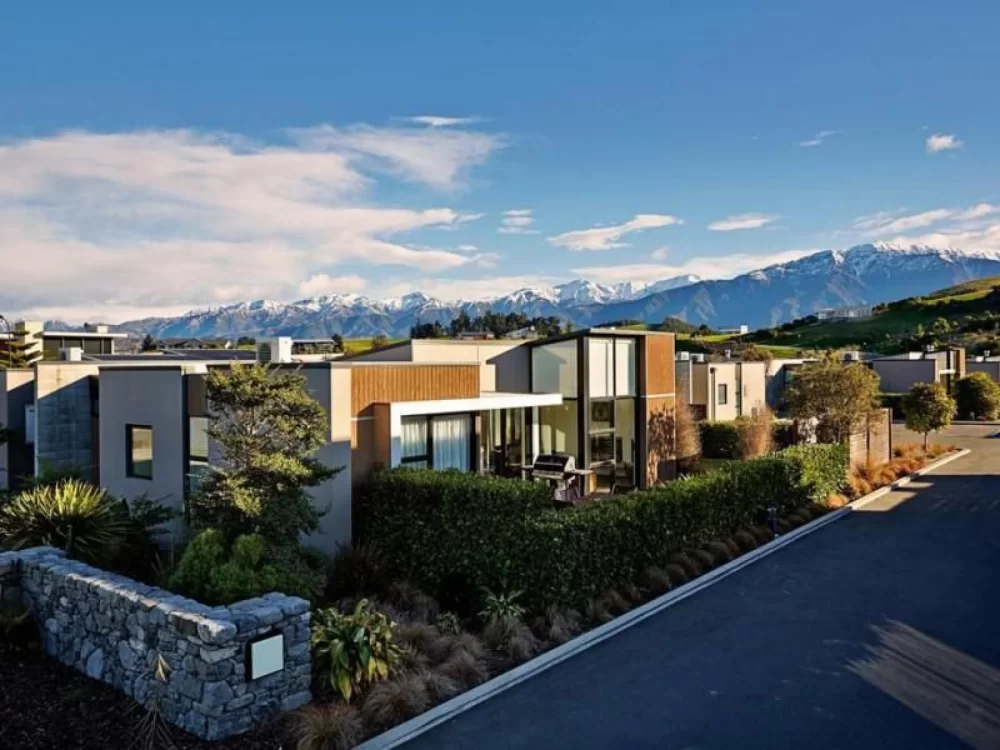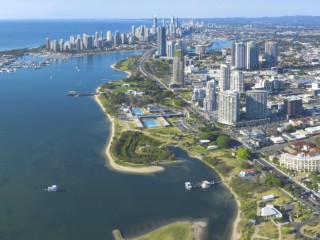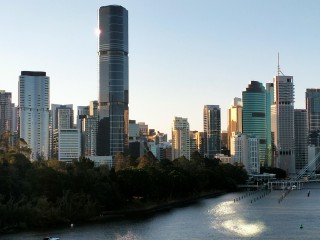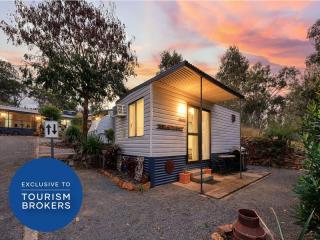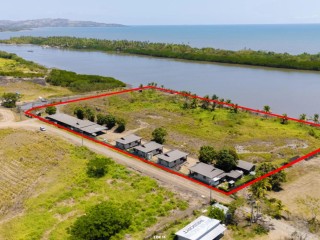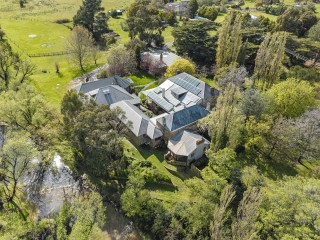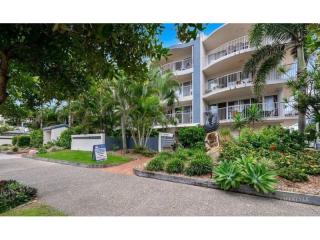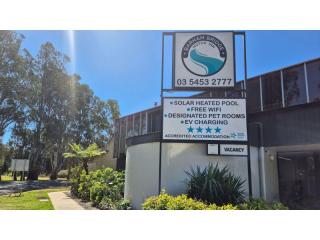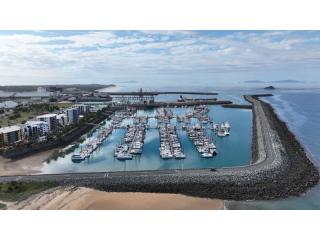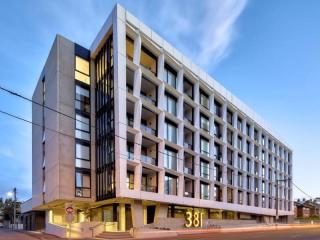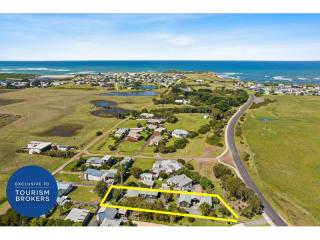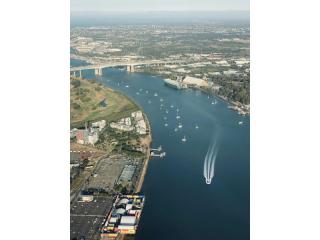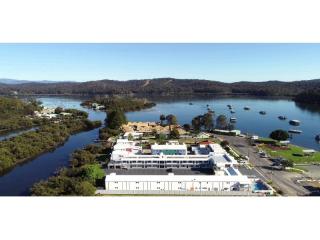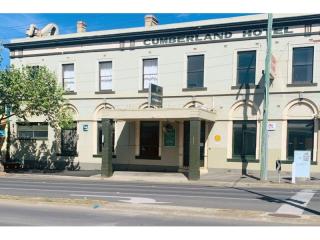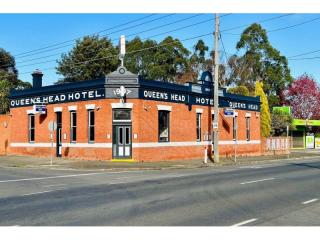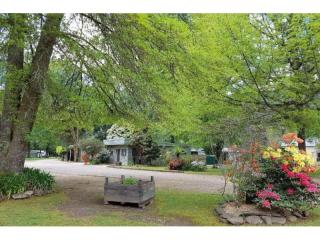AccomProperties, takes a look at the New Zealand Management Rights industry and how it compares to New Zealand, and it's effects on the Tourism Industry.
It's been voted by Trip Advisor as New Zealand's No.1 beach and Kelvyn Coffey is selling the management rights for a stunning waterfront property at Mount Maunganui.
Management rights properties are still rare across the Tasman where Mr Coffey says there is little regulation and where contracts vary greatly in their terms and scope.
He said most Kiwi properties generally worked on a multiple of four times earnings as compared to some areas of Queensland which were achieving more than six.
Management rights to the Pavilion beachfront apartments, a three-hour drive south of Auckland, are on sale for $NZ995,000 plus the managers residence for $NZ2,000,000 (plus GST if any).
The modern, recently renovated management rights complex overlooks the main beach in Mount Maunganui. The relaxed lifestyle in a stunning location is complemented by an impressive six-figure income.
There are 21 apartments in the complex with 14 in the letting pool and the property has shown consistent profitability. Most of the apartments have ocean views and the property prides itself on repeat business.
The manager’s apartment contains a secure double lockup garage and storage unit.
Mr Coffey said while the New Zealand management rights industry had “grown a little bit” it was still nowhere near as strong as the trade there in motel sales and leasing. Motels form 90 per cent of his business, Coffeys Tourism Property Brokers.
“Management rights in New Zealand is certainly selective like it is in Australia where you see more management rights in Queensland and northern New South Wales than anywhere, Mr Coffey said.
“You'll see more management rights in places such as Queenstown and Tauranga and Mount Maunganui, than anywhere else in New Zealand.
“I think management rights offers a good model but it's still not big here.”
Mr Coffey said he first sold a management rights complex more than 20 years ago in Queenstown when contacted by a long-time client.
“I just got on the phone and rang up some brokers in Queensland and asked: ‘how do you guys deal with them?’ We were supposed to be specialists in the field but we didn't know much about management rights, and I was confident that no one else in New Zealand did either.
“That's a long time ago and we've learned the model now. It's a slightly different model to what you have in Australia, where the industry is more regulated. But there is a certain commonality between all the contracts.
“In some ways it's a bit slack in New Zealand because a manager is dealing with other people's money so at the very least they should have a trust account and at least a partial real estate licence like they do in Australia.
“Here you can be handling your owners’ money without any of those protections.
“There was a case here some while ago where a body corporate took a manager to task because he had assets of his own such as a restaurant and function centre in the complex and there was a murky division about which money came from where.”
Mr Coffey said another major difference between operations in the two countries was in the income splits.
“You can get as much as 50 per cent commission at some properties here but of course if you're getting that you would be paying for absolutely everything,” Mr Coffey said.
“At the other extreme you have managers just taking 10 per cent off the top and often they see themselves as being responsible for nothing.
“I think that de-incentivises efficient management because it’s 10 per cent whether it's a profitable booking or not and that’s a terrible system.”
Mr Coffey said some New Zealand developers provided “the ultimate security of tenure” with all the individual apartments leased to the manager on long-term registered leases.
“But if the model stopped working for some reason the owners were still stuck with these places and with registered leases they couldn't get out of,” he said.
“The industry does need more regulation in New Zealand but it’s still not big enough yet to have attracted the attention of the powers that be.”
Mr Coffey is also marketing another spectacular management rights property at stunning Kaikoura, on the east coast of the South Island. The business is on the market for $NZ590,000. The manager’s residence is $NZ700,000.
Kaikoura is one of the most awe-inspiring locations in New Zealand and was once home to the celebrated Australian writer Henry Lawson, who spent time there as a schoolteacher.
This property offers 10 executive style luxury two-bedroom apartments and two studio units under long-term management contracts.
These dual key apartments can be let as 2-bedroom or 1-bedroom and studio rooms allowing a possible 22 units for the letting pool.
The complex is situated right next to Kaikoura Golf Club, with the beach across the road and the Kaikoura township a five-minute drive away.
The freehold investment in the manager's 4-bedroom modern architectural home, which includes the reception and laundry room, a lovely sunny outdoor area with pergola and boxed vegetable gardens.
The property is easy to operate being mainly wholesale bookings and is web based.
Adrian Chisolm, from the New Zealand company Tourism Properties, says he has sold dozens of management rights businesses over the past 18 years but currently has no listings for them.
He said banks generally didn’t lend money in New Zealand on management rights as the model still remained very different to the one in Australia.
“It's still the Wild West here as far as management rights go,” Mr Chisholm said.
“There's no trust accounts or anything.
“I haven't sold any management rights properties since COVID and while I've sold dozens of them over the years, at the moment it is certainly not a major part of our business.”
Mr Coffey said typically the split of revenue between the owner and the manager of a New Zealand property varied according to how the operating costs were allocated.
“Typically, the owner would directly receive the bills for rates, insurance and electricity. The manager would account to the owners on a monthly basis with a statement outlining the revenue from the apartment, less the manager’s share and less other items such as a proportion of common area electricity, telephone line rentals, Sky TV and in many cases consumables and cleaning and laundry services.
“The manager will generally pay the cost of operating their own business, including office expenses, phone charges, cleaning and laundry costs (depending on the split), accountancy, bank charges, postage and stationery etc. The Manager may also earn additional revenue from ancillary services provided directly to the guests, such as valet services, arranging of transport, provision of additional food and beverages and commission on the sale of third party tourist activities.”
Mr Coffey said the security of the manager’s tenure varied.
“Ideally, the contracts would be secured by a three-way relationship. The manager would be appointed by way of a long-term contract with the body corporate and the individual owners are to a certain extent bound by the body corporate rules and constitution. Each owner then usually has an individual contract with the manager, drawn up within the parameters of the body corporate–manager contract.
“In most cases, while in the letting pool, the owners have some rights to use their own apartment short-term and can, if they wish, withdraw from the letting pool by giving suitable notice. Technically there can be a risk in buying management rights that the letting pool would dwindle, however in reality this is seldom the case. Anyone wishing to own and occupy a residential apartment, would probably look for a different environment than that provided by a commercially managed apartment complex.
“In addition to the purchase of the management rights business, the managers usually buy their own apartment as well, this is often a mandatory requirement, however there are exceptions.
“Similar to the lease of a motel, the businesses will usually change hands a number of times throughout the tenure of the contracts. The value of the management rights business will remain relative to the profits generated and the prevailing rate of return accepted by the market at the time.
“The industry offers good returns and in many cases has advantages over the more traditional ways of operating in the accommodation industry."
Tags: Management Rights New Zealand For Sale Tourism Industry Accommodation
